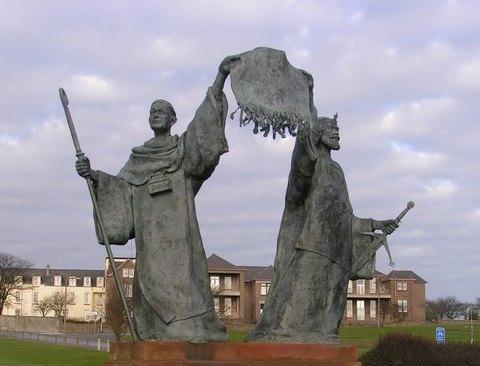When, long ago, the Roman Empire reached far and wide across Europe, there was one land where the Roman legions could not extend their iron grip and where Emperor Hadrian finally had to build a wall to protect the empire. This land of unmatched bravery and free spirits was none other than Scotland.
About 1,200 years later, that same Scottish mettle stood in defiance of England when the English king, Edward II, tried to put someone of his liking on the Scottish throne. Scottish King Robert the Bruce picked up where the legendary Scottish hero William Wallace left off and led his people to their most famous victory at the Battle of Bannockburn in 1314.






